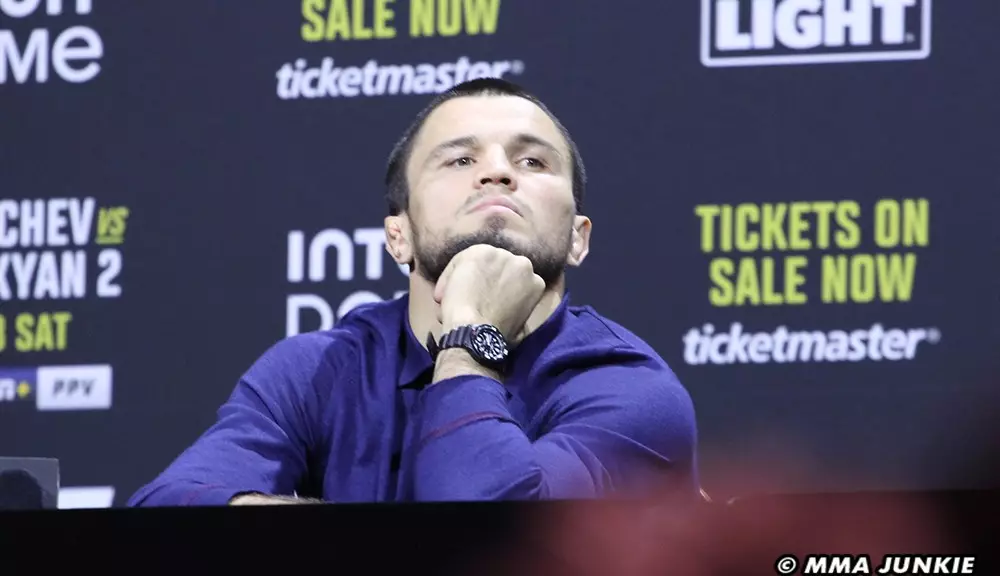Umar Nurmagomedov, an undefeated fighter in the UFC, is poised to challenge bantamweight champion Merab Dvalishvili on January 18 at UFC 311. The anticipation around this match is palpable, yet it is tempered by concerns surrounding Nurmagomedov’s recent arm fracture. His coach, Tim Welch, offers insight into the situation, emphasizing the athlete’s determination to compete even in the face of injuries and the implications of the title shot on his career.
Title bouts are often the culmination of an athlete’s hard work and dedication. For fighters, the opportunity to compete for a championship can be both a blessing and a burden. While some athletes may receive multiple chances at the title, many only get one definitive shot. This makes the stakes incredibly high, pushing fighters to take risks, sometimes even when they are not at their physical best. Nurmagomedov, with a record of 18-0, understands this pressure intimately and has been advised by close associates to reconsider his participation in the fight against Dvalishvili due to his injury.
Welch suggests, however, that Nurmagomedov might be less impacted by his injury than it seems. His confidence shines through as he notes that the fighter has a roadmap back to title contention, even if this particular fight does not go in his favor. This indicates Nurmagomedov’s strategy may involve weighing the risks of competing now against the potential for future opportunities, especially given the family legacy associated with the Nurmagomedov name.
In the combat sports world, fighters often navigate complex physical and mental hurdles. The notion that a fighter can appear invulnerable while contending with injuries complicates public perception. Dvalishvili has reportedly expressed doubt regarding Nurmagomedov’s readiness for the fight, citing his need for one more validated victory before qualifying for a title opportunity. This skepticism adds another layer to the pre-fight narrative that will captivate fans and analysts alike.
Nonetheless, Welch’s remarks indicate that he believes Nurmagomedov’s current condition does not pose a significant detriment. By suggesting that the fighter may rise to the occasion and demonstrate a readiness that could surprise observers, Welch aims to shift perceptions. Fighters like Sean O’Malley have previously fought through injuries, leading to critical outcomes, as O’Malley himself faced a similar challenge in his bout against Dvalishvili.
The build-up to UFC 311 suggests that even in a precarious position, Nurmagomedov has the tenacity to put everything on the line. His choice to fight just before Ramadan’s onset highlights his eagerness to seize the moment. The lingering question remains whether he will emerge from this bout unscathed, or if the weight of his injury will manifest during the fight.
As Nurmagomedov steps into the Octagon, he embodies the struggle, ambition, and unpredictable nature of mixed martial arts. The outcomes of title fights hold the power to change careers, and for Nurmagomedov, every second spent training and preparing, even while nursing injuries, reflects a deep-seated desire to achieve greatness. Whether he can translate that into victory against Dvalishvili remains to be seen, but the journey itself is already a testament to his commitment to the sport.

